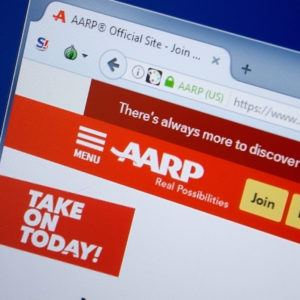Recent polling suggests that health care is still very much at the forefront of voters’ minds as we head into the homestretch before the midterm elections. For seniors and their families, the cost and affordability of prescription medications remains a chief concern.
Seeing the writing on the wall, Washington’s elite and the special interests they serve have coalesced around a predictable set of messages aimed more at scaring seniors than finding actionable solutions to help them. It’s a cynical ploy, and one that seniors and voters should not mistake for anything but a profit-driven enterprise.
Case in point, a new six-figure ad campaign from Patients for Affordable Drugs Now and AARP that calls on seniors to push back against cartoonish caricatures of “big pharma.” What’s the policy? How does this message benefit seniors? A casual, viewer would be hard pressed to answer those questions amid the dramatic music, flying money and photo-shopped cigars.
Pulling back the curtain reveals this push for what it is; an attempt by the insurance industry to safeguard its profits to the detriment of America’s seniors. The strong desire by the insurance industry to obfuscate and trick seniors to act against their own self-interest cannot be disentangled from these aggressive marketing tactics from AARP and Patients for Affordable Drugs Now. With undeniable ties to the insurance industry, seniors should take this latest advocacy push with a grain of salt.
Through recent litigation AARP was exposed as having made nearly 52 percent of its total operating revenue off commissions for new or renewed policies with its insurance partners. This kind of skimming by AARP was also brought to light in a class action lawsuit in which seniors alleged the “non-profit” AARP, along with its business partner UnitedHealthcare Insurance Company, artificially inflated Medicare supplemental health insurance charges for profit. The result? Senior citizens lost millions of dollars.
Washington has known this secret for years. In a 2011 investigative report by Reps. Wally Herger, R-California, and Dave Reichert, R-Washington, titled “Behind the Veil: The AARP America Doesn’t Know,” the authors found an organization run amok and lacking basic scrutiny. Not much has changed in the intervening years. AARP still runs a for-profit insurance arm that subsequently funnels money back into AARP for advocacy campaigns like the one in question. These conflicts of interest are, however, masked by an image of “senior empowerment,” which falls apart when you simply follow the money.
Patients for Affordable Drugs Now, on the other hand, is staffed by many former Obama administration officials responsible for the insurance company sweetheart deals present in the Affordable Care Act, which AARP strongly supported in 2010 over the overwhelming objections of its members.
While it’s easy for bad actors in our health care system to hide behind meaningless platitudes and scare tactics, a closer look reveals little substance to their claims. Without the right incentives in place, carefully balanced marketplaces get corrupted, creating perverse incentives and price distortions that ultimately cost consumers more.
Health care will be a critical issue come November, especially for seniors, but we should turn a skeptical eye toward the messages with a clear industry bent coming from the Washington swamp. Seniors should not be sold snake oil and told it is medicine. Lawmakers, to that end, should also carefully review the facts before taking AARP and Patients for Affordable Drugs Now at their word. Putting patients before profits will always result in pushback from special interests, but this is the vital work that we sent our representatives to Washington to do.

